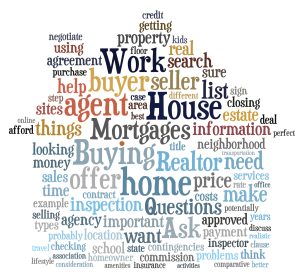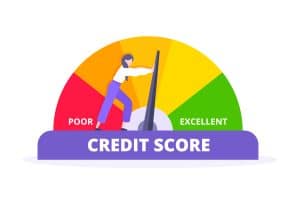How To Buy a House

The Home Buying Process
 Buying a home is a big decision – probably the biggest one you’ll make in your lifetime. It’s important to do your homework and learn as much as you can about the process before you dive in. The first step is to get pre-approved for a mortgage. This will give you an idea of how much house you can afford. Once you have your budget in place, it’s time to start looking at properties. Real estate agents can be a great resource in this stage, helping you find homes that meet your specific needs and fall within your price range.
Buying a home is a big decision – probably the biggest one you’ll make in your lifetime. It’s important to do your homework and learn as much as you can about the process before you dive in. The first step is to get pre-approved for a mortgage. This will give you an idea of how much house you can afford. Once you have your budget in place, it’s time to start looking at properties. Real estate agents can be a great resource in this stage, helping you find homes that meet your specific needs and fall within your price range.
Find a REALTOR®
 For anyone looking to buy or sell a home, working with a REALTOR® is a smart move. REALTORS® are experts in the real estate market and can help you navigate the often complex process of buying or selling a home. They can provide valuable advice and guidance on pricing, negotiating, marketing, and more. So if you’re ready to take the next step in the real estate market, be sure to find a REALTOR® you can trust. With their help, you’re sure to find the perfect home for you and your family.
For anyone looking to buy or sell a home, working with a REALTOR® is a smart move. REALTORS® are experts in the real estate market and can help you navigate the often complex process of buying or selling a home. They can provide valuable advice and guidance on pricing, negotiating, marketing, and more. So if you’re ready to take the next step in the real estate market, be sure to find a REALTOR® you can trust. With their help, you’re sure to find the perfect home for you and your family.
What’s the Difference Between a REALTOR® and a Real Estate Agent?
When it comes to buying or selling a home, you might wonder what the difference is between a real estate agent and a REALTOR®. Both real estate agents and REALTORS® are licensed to help people buy and sell property, but there are some key differences between the two.
For one, in order to become a REALTOR®, agents must adhere to a strict code of ethics and participate in ongoing education. In addition, REALTORS® must be members of the National Association of REALTORS®, while real estate agents do not have to be. As a result, REALTORS® often have access to more resources and information. When choosing someone to help you with your real estate needs, you might want to consider working with a REALTORS® in order to take advantage of these benefits.
Determine How Much You Can Afford
One of the most important steps in buying a home is to determine how much you can afford. Factors include current interest rates, your monthly income, your current debt, and your debt-to-income ratio. The purchase price is just one part of the equation – you also need to consider closing costs, monthly payments, possible HOA or condo fees, mortgage insurance premium if you’re putting less than 20% down, and ongoing maintenance and repairs. A good way to start is by talking to a mortgage broker who can help you understand your options and find a loan that fits your budget. Once you have a clear idea of what you can afford, you can start shopping for your new home with confidence.
Create a Wish List for Your New Home
 When you start thinking about buying a new home, it’s easy to get caught up in all of the things you want in your dream home. However, it’s important to take a step back and focus on your needs. What features are absolutely essential for your new home? Do you need a certain number of bedrooms or bathrooms? What about a specific type of kitchen or certain square footage?
When you start thinking about buying a new home, it’s easy to get caught up in all of the things you want in your dream home. However, it’s important to take a step back and focus on your needs. What features are absolutely essential for your new home? Do you need a certain number of bedrooms or bathrooms? What about a specific type of kitchen or certain square footage?
Once you’ve identified your needs, you can start making a wish list of all the things you’d like to have in your new home. Maybe you want a spacious backyard for entertaining or a cozy fireplace for snuggling up on cold winter nights. Or perhaps you’re dreaming of a gourmet kitchen or a luxurious primary bathroom. Whatever it is that you’re hoping for, be sure to prioritize your wants and be realistic about what you can afford. By taking the time to identify your wants and needs, you’ll be able to focus your search and find the perfect new home for you and your family.
Get Your Finances in Order
One of the best ways to get your finances in order is to start tracking your expenses. This can help you see where you’re spending your money and identify areas where you could save some cash. There are a number of different ways to track your expenses, so find one that works best for you. Some people prefer to use a physical notebook, while others prefer to track their expenses online. Whichever method you choose, be sure to update it regularly and review your spending patterns periodically.
Another way to get your finances in order is to create a budget. A budget will help you keep track of your income and expenses, and it can help you stay on track with your financial goals. There are a number of different budgeting methods out there, so find one that fits your lifestyle and personality. If you need some help getting started, there are a number of online resources available, or you can talk to a financial advisor for personal guidance.
It’s also very important to know your credit score.
By getting your finances in order, you’ll be setting yourself up for success in the future. By taking control of your money, you’ll be able to save for important goals like retirement or college tuition. So don’t put it off any longer – start getting your finances in order today!
Check Your Credit Score
 When you’re buying a home, it’s important to have your finances in order. One way to get your finances in order is to check your credit score. Your credit score contains information about your credit history and current financial standing. It can be helpful to review your credit score before applying for a mortgage, as this will give you an idea of how likely you are to be approved for a loan.
When you’re buying a home, it’s important to have your finances in order. One way to get your finances in order is to check your credit score. Your credit score contains information about your credit history and current financial standing. It can be helpful to review your credit score before applying for a mortgage, as this will give you an idea of how likely you are to be approved for a loan.
If you find any errors on your credit report, be sure to dispute them immediately. You can do this by contacting the credit bureau that issued the report. By correcting any mistakes on your credit report, you’ll improve your overall financial standing and make it easier to obtain a mortgage loan. In addition, make sure you’re always making timely payments on all of your bills – this will help improve your credit score over time.
Choose a Lender and Get Pre-approved for a Mortgage
When it comes time to buy a home, one of the most important things you can do is find a lender and get pre-approved for a home loan. This will show the seller that you’re serious about buying the home and it will also help you determine your budget. There are a number of different lenders out there, so it’s important to do your research and find one that fits your needs.
Once you’ve chosen a lender, it’s time to start the pre-approval process. This will involve providing the mortgage lender with some basic information about yourself and your financial situation. The lender will then run a credit check and verify your employment and income. If everything looks good, you may be approved for a mortgage loan. There are several different types of loans. Some examples you might be suited for are a conventional loan, a VA loan, or an FHA loan. FHA stands for the Federal Housing Administration. Keep in mind that the pre-approval process can take a few days or weeks, so be patient and don’t rush into anything.
By getting pre-approved for a mortgage, you’ll be putting yourself in a much better position to buy a home. You’ll know exactly how much you can afford and you’ll be able to move quickly when you find the right property. So start shopping for homes today and get pre-approved for a mortgage – it’s the best way to ensure success in the home-buying process!
Make a Plan for the Down Payment
When you’re buying a home, you’ll need to come up with a down payment. This is the amount of money you’ll be putting down upfront in order to purchase the property. The down payment can be a percentage of the purchase price or it can be a set amount of money.
Monthly Mortgage Payment
When you’re looking for a home, it’s important to think about your monthly mortgage payment. This is the amount of money you’ll be paying each month to the lender in order to finance your home. It’s important to make sure that your monthly payment is within your budget, as this will help you stay on track with your finances.
There are a number of different factors that will affect your payment. The size of the mortgage loan, the interest rate, and the term of the loan will all play a role in how much you’ll pay each month. It’s important to shop around for the best interest rate, as this can save you a lot of money in the long run.
Buying the House
Now that you’ve gotten pre-approved for a mortgage and you’ve saved up for a down payment, you’re ready to buy a house. The best way to start is by looking for homes in your price range. Your REALTOR® will help you with this.
Once you’ve found a few homes that you’re interested in, it’s time to start scheduling showings. This will give you the opportunity to see the property in person and determine if it’s the right fit for you. It’s important to keep in mind that you don’t have to buy the first home that you see – take your time and make sure you find the right property.
If everything goes well and you decide to make an offer on the home, be prepared to submit an earnest money deposit if your offer is accepted. The earnest money deposit will be applied against the total cost to purchase the home. It is a good idea to put as much money down as you can, as it will show the seller that you’re serious about buying the property.
Now that you know what to expect, it’s time to start house hunting! Be sure to stay organized and take your time – it’s not a decision to be taken lightly. By following these simple steps, you’ll be well on your way to owning your very own home.
Go Shopping!
 Remember though that you’re now shopping for a home.
Remember though that you’re now shopping for a home.
Credit scores are important to maintain, especially when you’re buying a home. A high credit score will help you get approved for a mortgage loan and it will also get you a lower interest rate. If your credit score is low, you may have to pay a higher interest rate and you may not be approved for a loan at all.
So how can you maintain a good credit score? There are a few things that you can do:
Don’t make any huge purchases, like buying a new car, or run up your credit card debt while in the home-buying process. Both of these things can damage your credit score and change your debt to income ratios, potentially impacting your loan approval.
Make on-time payments each month. This is the biggest factor in determining your credit score.
Keep your credit card balances low. This will also help improve your credit score.
By following these tips, you can maintain a good credit score and get ready to buy a home!
Start the Home Search Process
When you’re ready to start the home search process, be sure to use the MLS (Multiple Listing Service). MLS is a database of all the homes for sale in your area. It’s a great way to see all of the available homes at once and it’s also a great way to get information about the homes that you’re interested in.
This will allow you to see all of the homes that are for sale in your area. It’s a great way to start narrowing down your options and it will also help you get an idea of what’s available in your price range.
Your REALTOR® will help you with this – they’ll have access to the MLS (Multiple Listing Service) and will be able to find homes that fit your budget. It’s important to keep in mind that you don’t have to buy the first home that you see – take your time and find the right property.
Make an Offer
 When you find a home that you’re interested in, it’s time to make an offer. This is a formal offer to purchase the property and it’s important to make sure that your offer is reasonable.
When you find a home that you’re interested in, it’s time to make an offer. This is a formal offer to purchase the property and it’s important to make sure that your offer is reasonable.
Your REALTOR® will help you with this – they’ll work with you to come up with an offer that’s reasonable for both the buyer and the seller. They will also submit the offer to the seller’s agent, along with all of the paperwork. It’s important to keep in mind that the seller may not accept your first offer, so be prepared to negotiate.
I always say, finding the house you like is the easy part. The challenges come next with the many negotiations that will take place. This is the process of bargaining with the seller in order to come to an agreement about the final sales price of the property and all of the other conditions of sale. Your offer may contain contingencies such as a home inspection, financing, and appraisal.
If the seller accepts your offer, be prepared to submit the earnest money deposit. This is a deposit that shows the seller that you’re serious about buying the property. The amount of earnest money varies, but it’s typically around 1-3% of the purchase price. In a competitive market, the more you can put down upfront, the stronger your offer will look to the seller. The seller will weigh the offer price, the earnest money deposit, the kind of financing, and any contingencies in your offer, and make a decision based on those factors. It’s always important to make your strongest offer from the start.
Schedule a Home Inspection
 Even if you think you’re falling in love with a property, it’s important to schedule a home inspection as soon as the offer is accepted. This will allow you to find out if there are any major issues with the property that need to be fixed before you buy it.
Even if you think you’re falling in love with a property, it’s important to schedule a home inspection as soon as the offer is accepted. This will allow you to find out if there are any major issues with the property that need to be fixed before you buy it.
The home inspector will check the roof, the foundation, the plumbing, and the electrical wiring. They will also check for any signs of water damage or pest infestation.
If there are any major issues with the property, the home inspector will be able to tell you about them. This will help you make a decision about whether or not you want to buy the property.
If there are any major issues that need to be fixed, you may want to negotiate a lower price with the seller or ask that the seller make the repairs prior to closing.
Have the Home Appraised
Once you’ve negotiated a price with the seller and they’ve agreed to your terms, it’s time for a home appraisal. This is a process where a professional appraiser will come to the property and evaluate it. They will determine the appraisal value of the property and send a report to your lender.
If the appraised value is more than the purchase price, you’ll be able to get a home loan and will have a bit of instant equity. If the home appraises for less, you may have to come up with additional funds in order to buy the property or the seller may have to lower the price to the appraised value. This is another negotiation and a reason why it’s always a good idea to make sure this is your REALTOR’S® strong suit.
What Are Closing Costs?
Closing costs are fees that are paid when you buy a home. They include the fees for the title search, the appraisal, and the lender’s fees. They can also include the fee for the survey, as well as any taxes or insurance that need to be paid.
Some of the most common fees include:
Title Insurance and search fee
Appraisal fee
Lender’s fee
Survey fee
Property Taxes
Homeowners Insurance
HOA or Condo Association fees
The Closing
 Closing day is an important day for both the buyer and the seller. The buyer will need to sign a bunch of documents, including the loan agreement and the deed of trust. The seller will need to sign the deed, which transfers ownership of the property to the buyer.
Closing day is an important day for both the buyer and the seller. The buyer will need to sign a bunch of documents, including the loan agreement and the deed of trust. The seller will need to sign the deed, which transfers ownership of the property to the buyer.
It’s important to make sure that you have all of your documents ready for closing day. This will help ensure that the process goes smoothly. If you have any questions, be sure to ask your REALTOR®.
On closing day, you’ll meet with the escrow officer to sign all of the documents and finalize the sale. Be sure to bring your identification and any other paperwork that has been requested.
Once everything is signed, the escrow officer will release the funds and you’ll officially own your new home!
Time To Move In!
 Once you’ve signed all of the paperwork and paid the closing costs, you’ll be the official owner of the property. Congratulations! It’s time to move in!
Once you’ve signed all of the paperwork and paid the closing costs, you’ll be the official owner of the property. Congratulations! It’s time to move in!
If you’re moving into the property yourself, make sure to schedule a moving date. You can use a moving service or rent a truck to help you with the move.
If you’re not moving into the property yourself, make arrangements for someone to take care of the move for you. They will need to pack up all of your belongings and transport them to your new home.
Moving day is always a busy time – but it’s worth it when you finally get to settle into your new home. Congratulations on your new purchase!
That’s the Basics of the Process When Buying a House
Buying a home is a big decision- one that should not be taken lightly. But with the help of a knowledgeable real estate agent and some careful planning, it can be an exciting and rewarding experience. I’m happy to help you with the home-buying process. Contact us today with any questions!




Leave A Comment